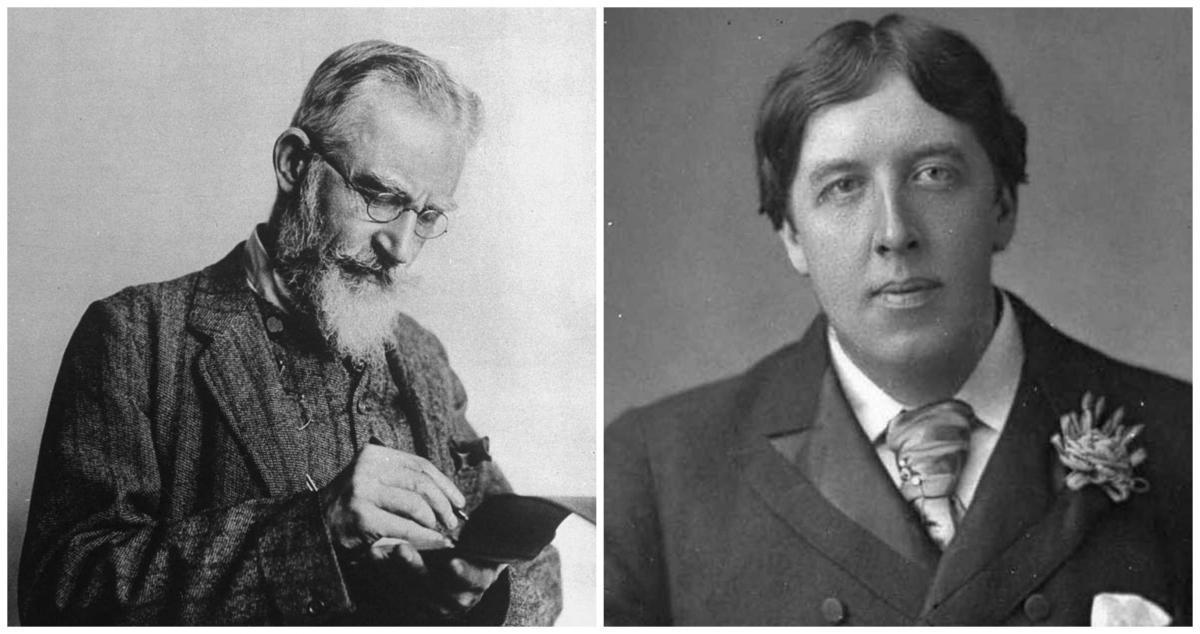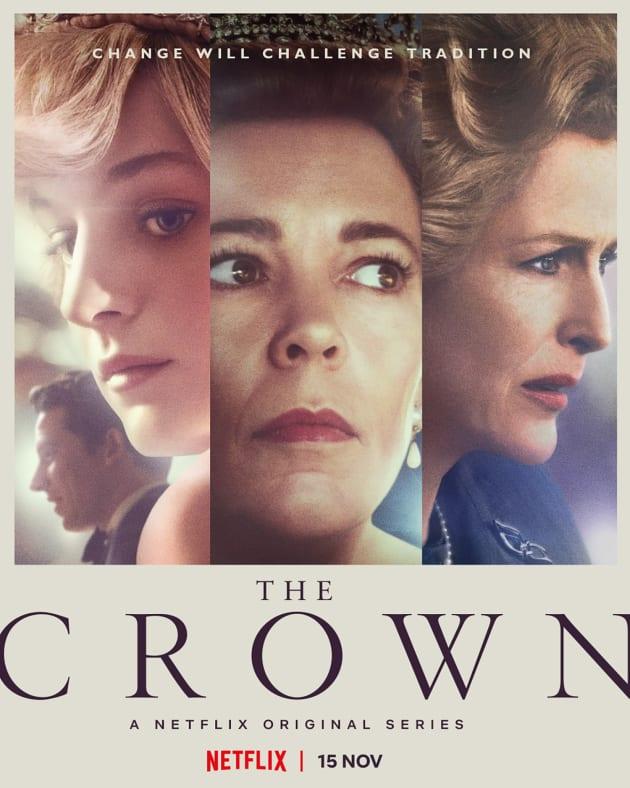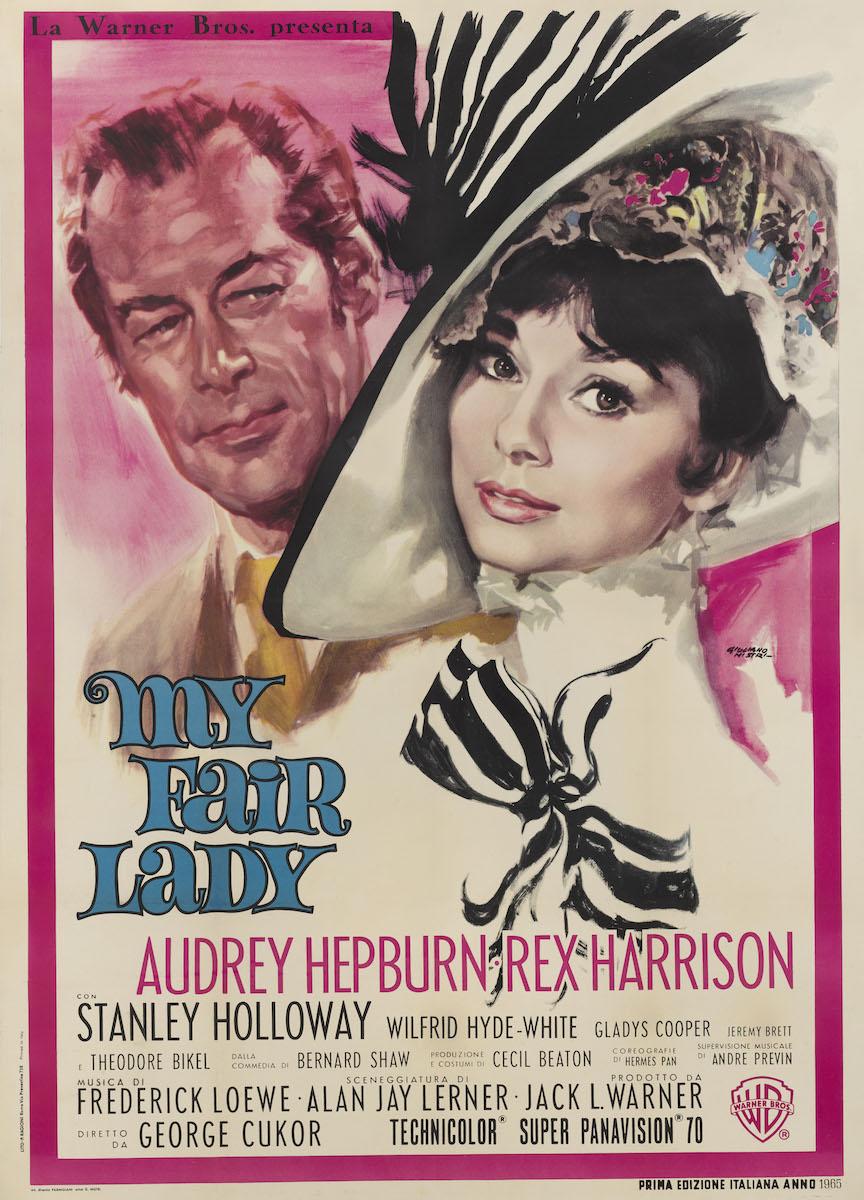
Disclaimer: Any views expressed by individuals and organisations are their own and do not in any way represent the views of The Heritage Portal. If you find any mistakes or historical inaccuracies, please contact the editor.
“Separated by a Common Language” is a paraphrase of what the Irish playwright, George Bernard Shaw (1856-1950), once said when he spoke about the relationship between the United States of America and Great Britain. His contemporary and compatriot (but no companion), Oscar Wilde (1854-1900) said much the same thing with the quote, “We have everything in common with America nowadays, except, of course, language”. The quotations of both men are epigrams and thus are more witty than truthful, but they do emphasise that there are some differences in the way people speak and write either side of the “Pond”.
General American English and British Standard English are mutually intelligible with only minor differences in grammar, vocabulary, spelling and in pronunciation, however, that said regional dialects can be a cause of difficulty and have led to many a misunderstanding; for instance a person with a Cockney accent (from London’s East End) will not easily understand someone with a Southern Drawl from the Deep South and visa versa unless both are able to moderate their speech towards a more “middle of the road” English; Michael Caine meets Johnny Cash if you will.
Standard English, also known as “Received Pronunciation” (RP for short) is instantly recognisable as being “typically British”, the speech of James Bond and those who speak with his accent cannot be “pin-pointed” as to where they come from. With the advent of radio broadcasting in the 1920’s, people from across the British Isles could “tune in” and listen to the broadcasts of the BBC, whose management determined that the speech patterns of RP (not to be confused with the notions of “Posh” speech) should be the norm and thus they would make RP the benchmark by which all other dialects are measured, therefore the broader (stronger) the accent is the further away it is from RP and dialects that are considered particularly broad are Cockney (London), Geordie (Newcastle), Scouse (Liverpool) and Brummie (Birmingham). The Scots, Welsh, Irish and Northern Irish all have different accents from the English, which is a product of how the English language has developed regionally over the last 1500 years. The lowland Scots have their own language, known as “Scots” which is an offshoot of English as it was spoken in Northumbria before the “great vowel shift” (between 1400 and 1700 CE) and Robbie Burns is still celebrated for his poems in the Scots vernacular.
General American English and Received Pronunciation vie with each other when it comes to the teaching of English to foreign students, they are both considered to be well spoken English and it is a matter of personal choice as to which is chosen. There are individuals who can change their accent from RP to GAE like flicking a switch (i.e. they are bidialectical), the American actress Gillian Anderson is one such person and when living in London, she speaks with an English accent, but when she is back in the States she reverts to an American accent. She won the Best Actress in a Television Supporting Role at the 2021 Golden Globes, for her portrayal of Margaret Thatcher in the fourth season of the Netflix mini-series “The Crown” and when she made her acceptance speech (via TV link) it was with an American accent. The British Actors Damien Lewis (Band of Brothers, Homeland & Billions), Hugh Lowrie (House) and Rupert Friend (Homeland) do a great job, when in character, “nailing” an American accent and you would not even know that they were British.
A Netflix poster for The Crown with Gilian Anderson playing Margaret Thatcher on the right
There are many other styles of English spoken around the world, in fact everywhere the British went and settled and today we have Aussie English, Kiwi English, West Indian English, South African English and English as spoken on the Indian sub-continent, Singapore and Hong Kong. They are all in the main mutually intelligible, as modern day communications and improvements in education make it easier to conform to a reasonable standard, but there would be instances when conversation could be difficult. For example, when a Glaswegian (speaking “Scots”) goes “Walkabout” in the “Outback, Down Under” (Australia) and meets Crocodile Dundee speaking “Strine” (a broad Aussie dialect), but I guess after a few “frosties” (cold beers) they would be “mates, fair dinkum” (good friends).
The sun sets regularly on the Union Jack these days but never on the English Language; like it or loathe it English has become the nearest thing to a Lingua Franca around the globe and roughly 800 million people speak it daily. In South Africa where we have eleven Official Languages, English is spoken as a mother tongue by only seven percent of our population but more importantly it has become, by necessity, the second language for everyone else in order for us to communicate better within our borders and abroad. The Springbok Rugby captain, Siya Kolisi is from the Eastern Cape, and his mother tongue is isiXhosa, but he is also fluent in English and he has made many after match speeches in English, his most famous being the one he made after winning the 2019 Rugby World Cup – played against England.
George Bernard Shaw never lost the Irish lilt in his voice even though he spent most of his days in England, having left his native Dublin as a mere youth of twenty years of age (in 1876). He would become the leading dramatist of his generation and was awarded the Nobel Prize for Literature in 1925, “for his work which is marked by both idealism and humanity, its stimulating satire often infused with a singular poetic beauty”. His play “Pygmalion” (written in 1912) is, to be sure (to be sure), his most popular, thanks in part to its musical adaptation as “My Fair Lady” (in 1956) by Lerner and Loewe.
My Fair Lady Movie Poster (Warner Bros)
The story line is well known as it is about Professor Henry Higgins wishing to teach Elisa Dolittle, a Cockney flower girl, how to speak English in a refined and proper manner and the line uttered by Higgins that “It is impossible for an Englishman to open his mouth without making some other Englishman hate or despise him” still has some element of truth to this day. It is therefore fortunate that we South Africans when in London and we speak no one is quite sure where we come from.
Main image: George Bernard Shaw and Oscar Wilde (Wikipedia)
References and further reading:
- "The English Language" by David Crystal, published by Penguin, 1990.
- “The Story of English” by Robert Mc Crum, William Cran, & Robert Mac Neil. BBC Publications, 1986.
- “The Adventure of English”, by Melvin Bragg, published by Hodder and Stoughton, 2003.
- “Divided by a Common Language”, by Christopher Davies, published by Houghton, Miffin, Harcourt, 1997.
- “Our Language” by Simeon Potter, first published by Pelican Books, 1950.
- “The Mother Tongue, English & how it got that way” by Bill Bryson, published by Avon Books, Boston, 1991.
- “Made in America” by Bill Bryson, published by Black Swan, 1998.
- “A Dictionary of South African English” by Jean Branford, published by Oxford University Press, Cape Town, 1980.
- “The English Language in South Africa” by Peter Ball, Heritage Portal, 2017
Comments will load below. If for any reason none appear click here for some troubleshooting tips. If you would like to post a comment and need instructions click here.


